Euro 2020: Covid rules in Wales mean no singing in pubs
- Published
Euro 2020: "Why aren’t I there? I should be there"
Standing proudly, pint in hand, shoulder to shoulder, bars are normally packed with fans singing the national anthem when Wales play.
But as the Euro 2020 finals continue with Wales due to face Denmark in Amsterdam on Saturday, the atmosphere is much more tame.
Due to Covid, the Welsh government had urged people not to sing or shout in order to stop the virus spreading.
One fan said not being able to sing the national anthem was "an alien concept".
While restrictions have eased massively in recent months, there are still strict rules limiting who you can have round or go to the pub with to watch the games.
From bar staff having to wear facemasks and people having to remain socially distanced from friends and fellow fans, supporting Wales in a pandemic is very different to the memories of 2016.
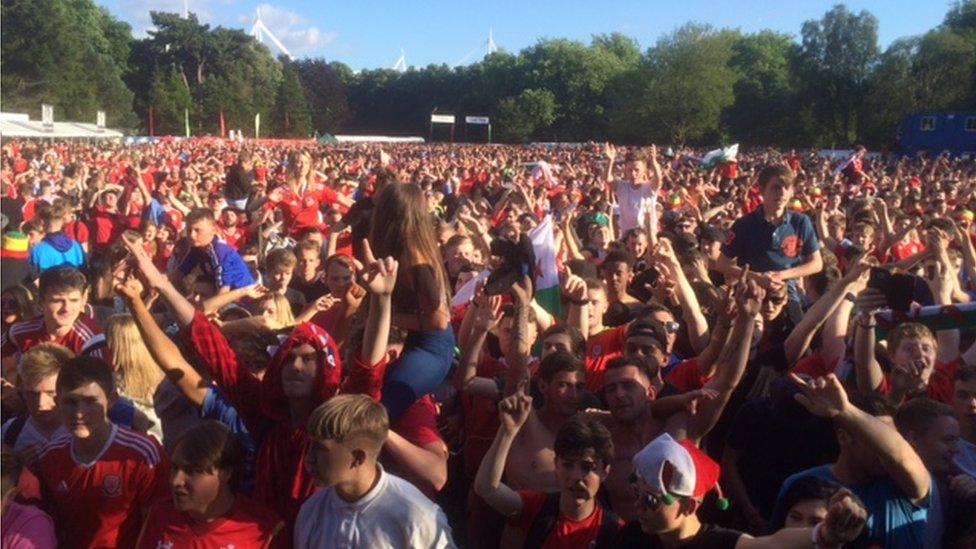
The fan zone in Cardiff erupted at the final whistle as Wales reached the quarter finals in 2016
The Welsh government had asked fans to avoid shouting, singing, or chanting wherever they watched the game to try to prevent the virus spreading through air droplets.
In pubs, landlords were asked to take "reasonable measures" to stop the spread of Covid, external, including keeping the broadcasting of games to "background noise level" in a bid to stop people shouting over the commentary.
The Welsh government said Covid guidance for pubs, bars, and venues - including stopping people from singing and standing - had been worked out in "conjunction with the sector".
But fans had said not being able to sing the national anthem or cheer when a goal is scored, would make it near-impossible to support their country.
Public Health Wales previously said talking, singing and shouting, could spread Covid-19.
Five years ago, Rebecca Thomas, from Llanelli, celebrated Wales' opening win of Euro 2016 surrounded by her family, hugging and cheering.
However, this year the NHS worker is watching the games with her rugby-loving parents at home and joked it would mostly involve her dad shouting at the referee for the whole game.
"Even if we could all get together, there would be no celebrations, with us all hugging... it's going to be completely different," she said.
"It was 58 years in the making... to be together was just incredible."
Allow X content?
This article contains content provided by X. We ask for your permission before anything is loaded, as they may be using cookies and other technologies. You may want to read X’s cookie policy, external and privacy policy, external before accepting. To view this content choose ‘accept and continue’.

Ms Thomas had decorated the house with flags and bunting despite watching the match with her parents, who know nothing about football.
She said restrictions meant she chose not to go to the pub: "It would have been impossible... how can you go to a pub and watch Wales and not sing the national anthem, that's such an alien concept to me," she said.
"I just couldn't do it... if we score a goal, how do you not sing, shout and hug people, I wouldn't cope."
Who can I watch Wales with?
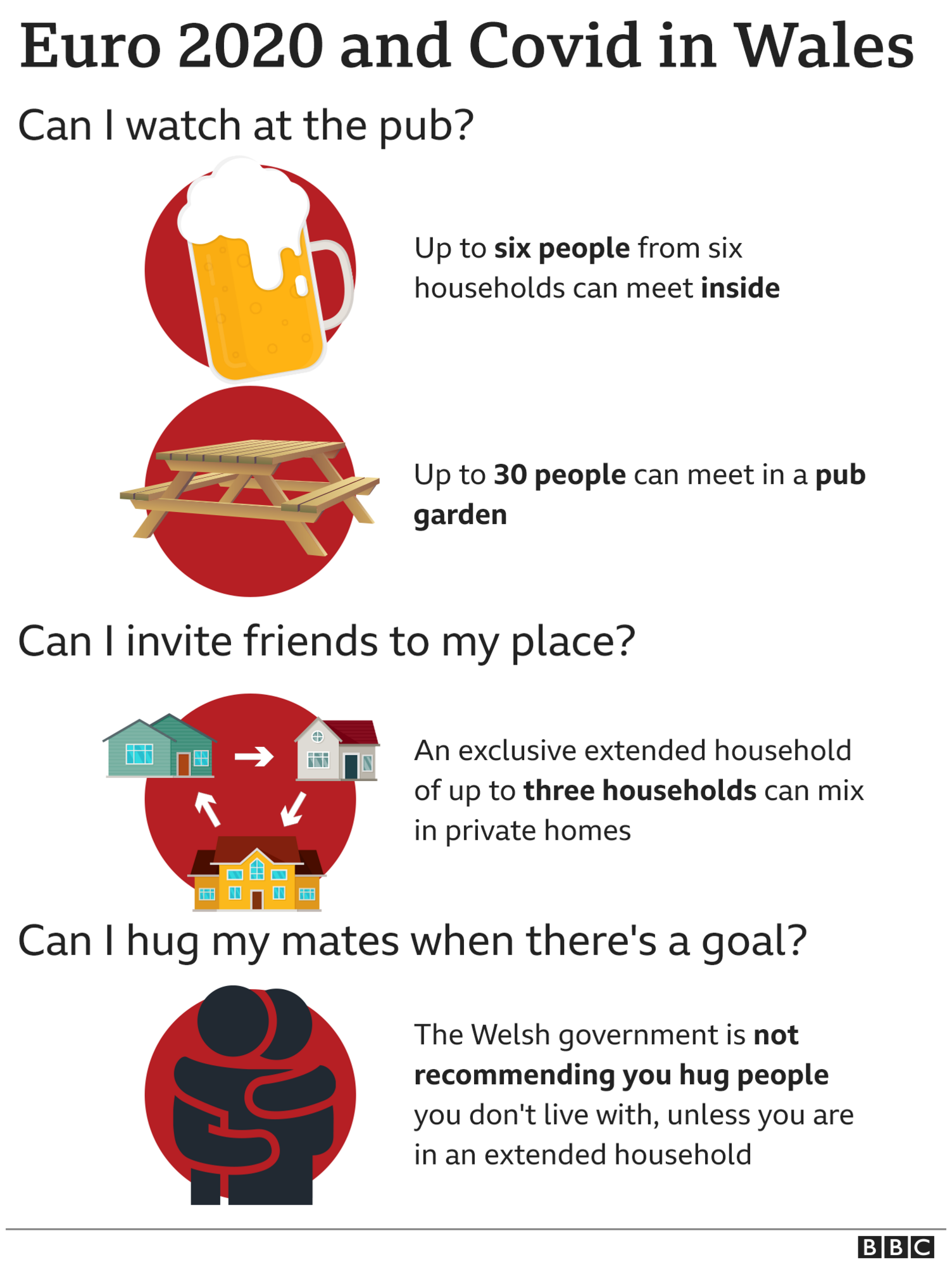

Only those in exclusive extended households - up to three, plus a single household - can meet inside a home to watch the game
If you are not in their extended household and want to go to a friend's house, you must stay outside
Up to 30 people can go to a private garden, beer garden or park to watch the game outdoors, but you must social distance, so no hugging, sharing drinks or food, and no singing
Up to six people from six households can go inside a pub together, but if they are not in your extended household, you must social distance
Masks will have to be worn while not seated in pubs and people are being told not to stand, with all food and drink having to be consumed at a table
- Published24 June 2021
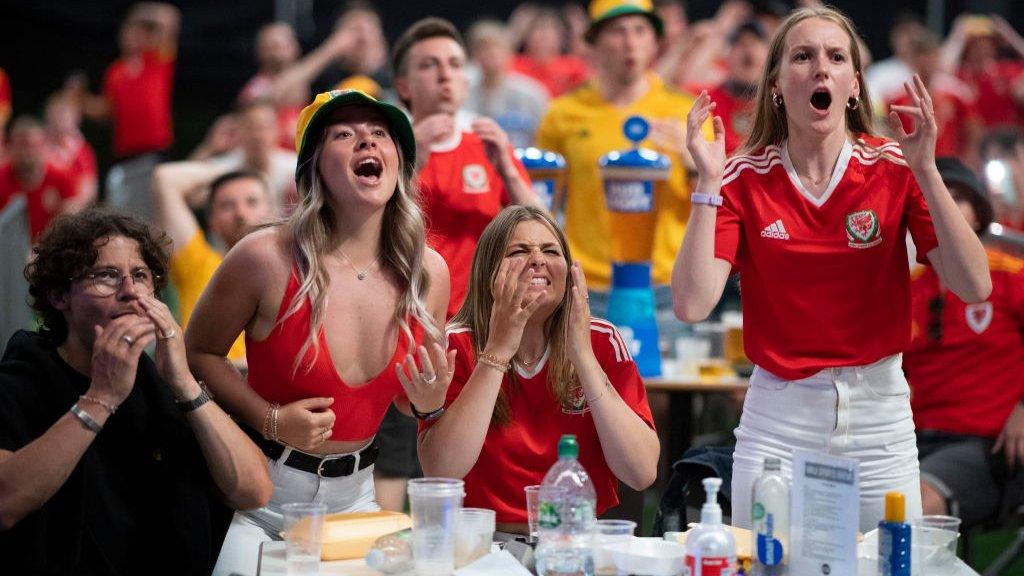
- Published25 June 2021

- Published9 July 2021
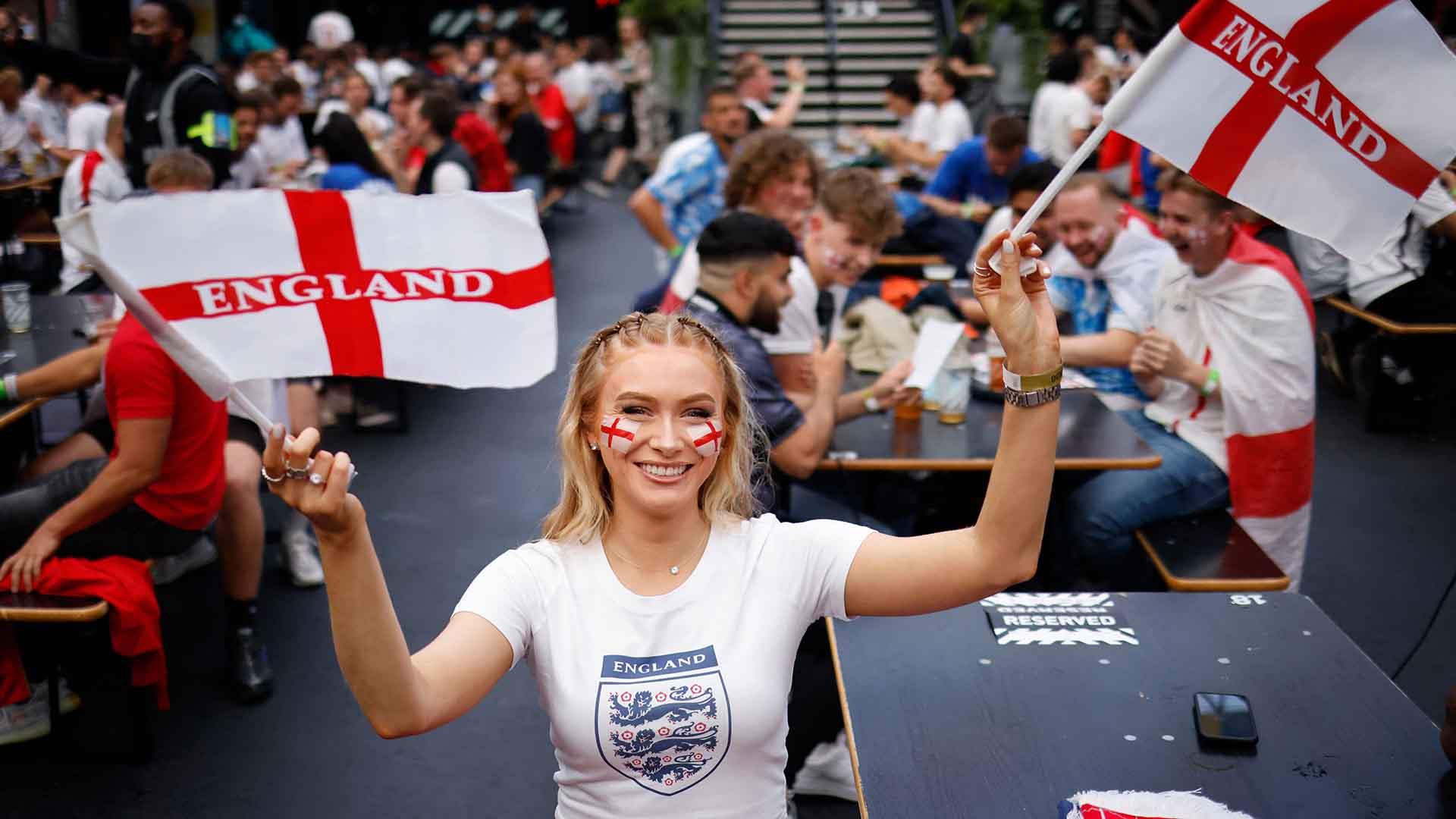
- Published21 May 2021
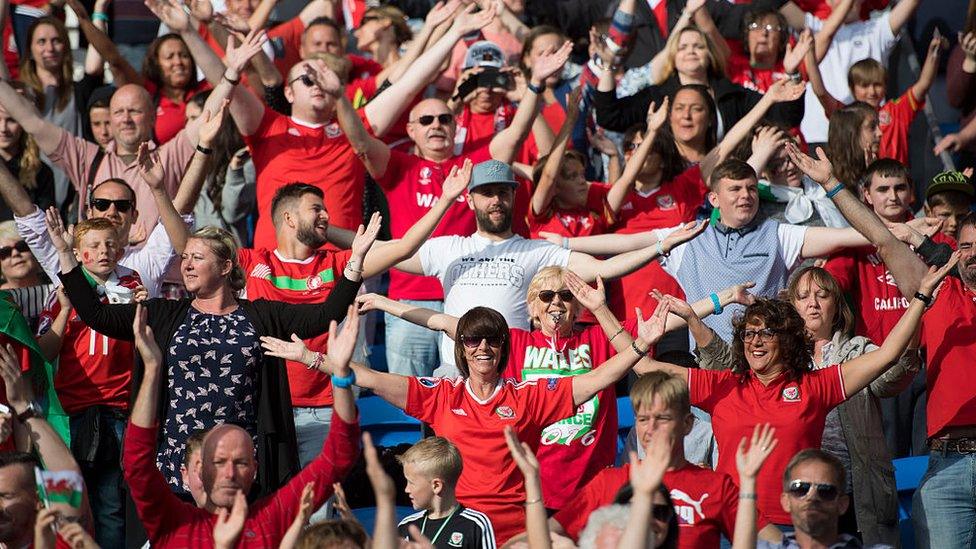
- Published18 May 2021
